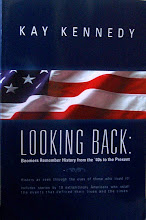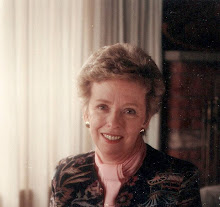As the ‘60s wound to a devastating close, 1968 turned into a counterculture clash against the establishment. The 1968 democratic convention was without a popular peace candidate or leader since Robert Kennedy had been killed, and those in the counterculture did not support Lyndon Johnson’s vice president in his bid for the nomination since he was a hawk on the war. Still, the young, including those under 21 and too young to vote, wanted their voices heard in the election since it was their generation being drafted and forced to fight in Vietnam. So many of them were being killed, or maimed, or losing their minds and souls after witnessing so much violence and devastation in a land far from home.
The differences between the generations came from many issues, but none more divisive than the draft. Many young men who couldn’t afford a college education and the draft deferment it offered, or who had already graduated from college, were moving to Canada to escape being drafted. Those who had already served a tour in Vietnam and didn’t want to return to the killing fields, and those who disagreed with our government’s war policies and inequalities, often deserted from the military and sought political asylum in Canada.
Government officials and the press cursed the young men who tried to avoid the draft or deserted, while their own sons enjoyed the privilege of dodging the draft without question or comment. Some young men having parents or friends with political influence, and who were already graduated from college, used that influence to get into the National Guard or Reserves, which seldom saw service in Vietnam. This was how George W. Bush and others in the current administration escaped service in Vietnam.
To say the war was an unequal opportunity, in many cases dividing the rich from the poor, would be an understatement. While most of the rich and influential sat at home enjoying life as they had always known it, the mostly poor and black young men of our country were forced to fight in the rice paddies and jungles far from home.
As the democratic convention started in Chicago in 1968, thousands of young people who resisted the war had gathered around the convention center for a massive demonstration. However, the police in Chicago were ready for them and used bayonets, tear gas, and other force to attack the demonstrators. At least one demonstrator was reported killed and hundreds were injured, including press members, medical workers, and police.
Hubert Humphrey became the Democratic nominee for president that year, while Richard Nixon was the Republican nominee. Both were disliked by many, if not most, of the voting public, but especially by the young. The decade ended with Nixon being elected president, which eventually lead to challenges to the Constitution and one of the nation’s biggest political scandals—and to the determination of the Republican Party to further challenge the Constitution in the future, and to take steps to enforce its control over the politics of the country.
While many young people were actively involved in the counterculture movement, or in the hippie movement back to the land, or in the civil rights movement, others of us were passively watching on the sidelines. In my case, I never participated in a demonstration, but I slowly but surely began to believe in the cause of the counterculture, as did those in the older generation of my family whose guidance, intelligence, and belief in God had always influenced me. They read, and they studied issues, just as I did, and they, like I, came to believe that things were no longer right in the United States of America.
My own beliefs came from a different place than most others under 30. Being the wife of a military (by choice) man, I was informed in 1964 that I couldn’t actively take part in the political campaign of a presidential nominee. Since we had orders to leave a few days before Election Day, I was not allowed to vote by absentee ballot, so I wasn’t allowed to vote in that election. Then by 1968, we lived on a military base and I was told that since I was not a resident of the State where we were stationed, I couldn’t vote. I was a citizen of the U.S., and my family had been here since before the Revolutionary War, yet I was denied the right to vote. Still, I had every right to become angry about the political situation, just as every citizen did. After all, my husband was actively serving his country!
Would my one vote have made any difference? NO! But, like many others in this country then, and now, I didn’t even have a voice. Maybe all of our votes together would have somehow made a difference.
The ‘60s changed my perceptions of my country and its leaders. My conservative background kept me from actively participating, but the drama of that decade changed the way I looked at politics and its influence on all of our lives. Our democracy was being threatened then, and it is even more under threat now, and it is up to every one of us to stay vigilant so that the forces that shaped the ‘60s never exist again. Still, I’m afraid that those very forces exist today, yet the avenues to protest them or control them have been closed by a media owned by only 6 major media giants, and controlled by our current government.
If steps are pursued to bring the Internet under the control of those few voices, and that attempt is progressing as I write this, I fear that we individual citizens will have all lost our voices. Without the sound of every voice of every citizen, there is no democracy!
Remember that Communism succeeded for so long because the press was limited and allowed only the government’s voice to be heard. Hitler and the Nazis were successful because only their voice and message was allowed to be heard. The only way for any evil empire to succeed is by limiting the type of news (the message) that its people are exposed to.
What can we, as individuals, do? I don’t have any answers. As a journalist, I am skilled at asking questions, and I’m capable of seeing what is wrong with our society, but the problems are so complex now that I don’t have any solutions to offer. Speak out, and you’re branded as a traitor. Question the status quo, and you’re branded as a troublemaker. Well, I’m neither a traitor nor a troublemaker, but I do care that our country continues as a free democracy, and that our Constitution is upheld and respected. Democracy has never been more threatened than it is right now.
I can offer only two suggestions:
1. Each and every one of us should READ the Constitution so that we understand what it says. It’s important that we all know what our forefathers wrote so we can ensure the continuance of the democracy that they fought so hard to establish.
2. Read the book, 1984, by George Orwell. In it you will find the playbook for the way our own lives are being manipulated today, right here in America. Scary? You bet!
God Bless America!
Monday, March 31, 2008
Subscribe to:
Post Comments (Atom)


No comments:
Post a Comment